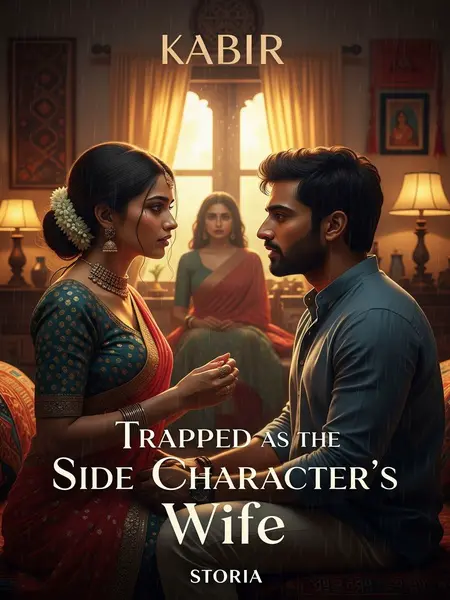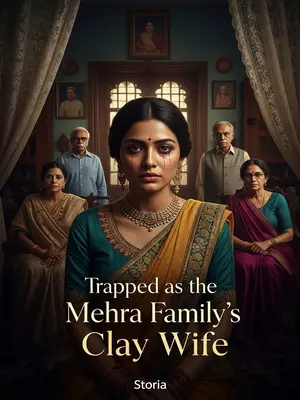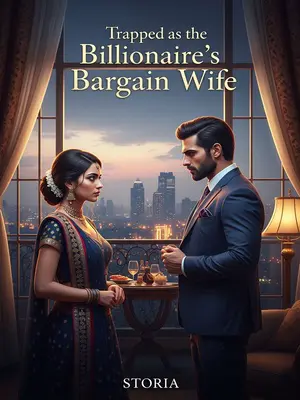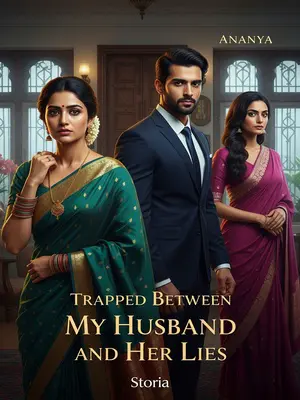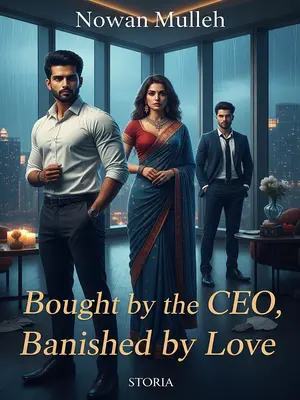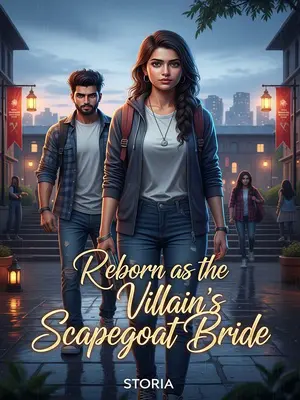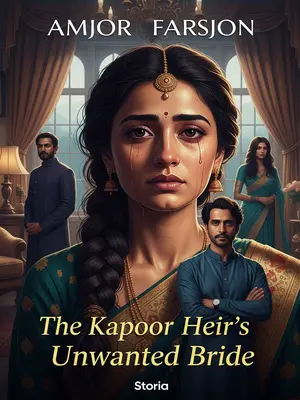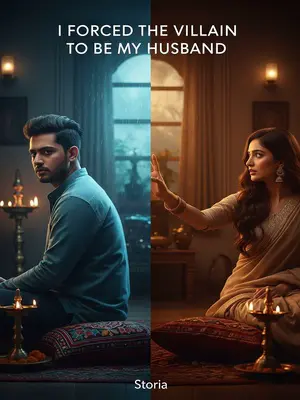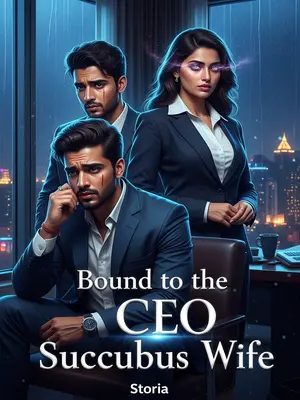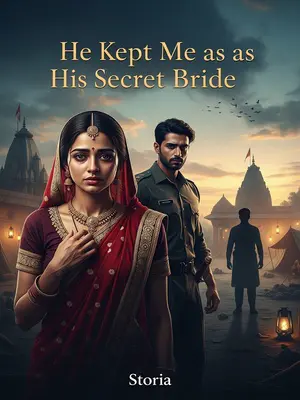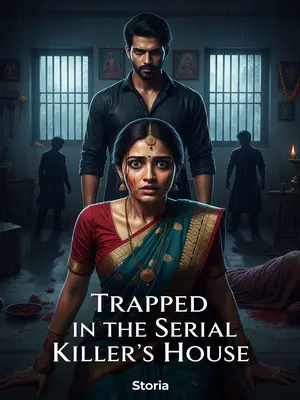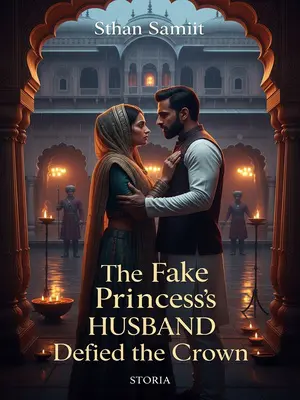Chapter 3: The Return of the Heroine
My vision blurred. When I came to, someone was already taking my pulse.
Familiar fingers, rough with age, pressed at my wrist. The faint smell of camphor filled the air, mingling with the scent of fresh-cut mangoes from the kitchen.
A flicker of hope rose in my heart, but when I turned and saw who it was, disappointment settled in. The name "Arjun" caught in my throat.
The hope flickered out like a diya in the wind. I forced a smile, trying not to show my hurt.
"Didi, I sent for Vaidya Shankar. You’ll be fine soon," Meera tried to comfort me, but I knew it was useless.
Her optimism, so familiar, felt forced this time. She squeezed my hand, knuckles white.
Sure enough, Vaidya Shankar withdrew his hand and said, "I am powerless."
His words fell like stones, each one heavier than the last. The lines on his face deepened as he looked away.
"Vaidya ji, you’re the best doctor at City Hospital—how can you not even relieve her pain?" Meera protested, her voice tinged with blame.
Her lower lip quivered, a rare show of defiance. She looked ready to fight the world for me, even respected elders.
I squeezed her hand and gave Vaidya Shankar an apologetic look. Thankfully, he understood she spoke out of worry and took no offence.
He gave me a gentle nod, eyes full of sympathy, then quietly packed his bag. The sound of glass bottles clinking was the only answer he gave.
"I’ll go call again..." Meera gritted her teeth, ready to rush out, but I shook my head.
She hesitated, torn between duty and despair. Her feet shuffled on the cool stone floor, desperate for purpose.
"Don’t go. It’s just two more hours to endure." No one else could save me. Otherwise, I wouldn’t have been declared doomed before sixteen.
I tried to smile, but my lips barely moved. The world felt unbearably heavy, as if even the gods had turned away.
Kabir saved me once, but now, he’s sent me back to hell.
The ache in my chest was more than physical. It was the ache of betrayal, sharp as a cracked bangle.
If I’d known this day would come, why save me at all?
I almost wanted to laugh—bitter, broken laughter. But I swallowed it, along with my pride.
In a flash, several days passed. My body returned to its old, frail state—I coughed blood every few steps, fainted every five.
The servants whispered in corners, Meera grew thinner with worry, and my father’s hair turned a little whiter every morning. The calendar pages fluttered by, marked only by my growing weakness.
Lying on the cane chair, my face pale as paper, my chest aching faintly.
The garden outside bloomed with marigolds, but I barely noticed. Even the koel’s song seemed distant.
The sunlight was warm, but I felt none of it—until a servant announced Kabir’s return.
The whole house seemed to hold its breath. Meera’s eyes darted to mine, hope and dread mingled on her face.
My heart fluttered. I looked up, only to see him carrying a woman in a green saree into the bungalow, not sparing me a single glance.
The air left my lungs. The green saree—always green, always perfect. Even her shadow seemed brighter than my presence.
"Didi, Saab—" Meera’s voice trembled with anger as she tried to chase after him, but I pulled her back.
I shook my head sharply, warning her with a glance. No need for a spectacle, not now.
A metallic taste rose in my throat; I forced Meera away.
Blood welled in my mouth. I pressed my hand to my lips, swallowing hard.
She might not know who that was, but I did.
The truth was a weight that settled in my bones, cold and unyielding.
Who else but the heroine would always wear green, no matter the time or place?
The world was her stage, and even her colours never faded. She floated past, untouched by the dust of our lives.
Back in my room, I could no longer hold back—I spat out a mouthful of blood. Meera’s eyes reddened with worry. "I’ll go call Saab!"
She hovered at the doorway, eyes wild, fists clenched in helplessness. My blood stained the handkerchief she pressed to my lips.
"Meera, don’t go. He’s not your Saab anymore." I gripped her hand, refusing to let her seek Kabir.
My voice was steady, but my heart broke with every word. Meera looked at me as if I’d aged a hundred years overnight.
He was so obvious—why should I go and humiliate myself?
If a woman has any izzat, she knows when to walk away. This time, I would not beg.
"But Saab used to care so much for you."
Meera’s protest was small, almost childlike, as if refusing to accept the new reality.
Meera was right; Kabir did care for me, but only when the heroine was well. Now, compared to her, I was nothing.
The truth stung, but I faced it squarely, the way Indian daughters are taught to do.
I still remembered the ambiguous moments and heartbeats of these years.
Memories flickered by—shared laughter, gentle touches, the warmth of Diwali diyas reflecting in his eyes.
The first time we met was on our wedding night.
A night thick with jasmine scent and awkward silences. The world waited for the new couple, but inside, I was trembling.
When the veil was lifted, I made it clear: he was to treat illnesses and save lives; I was only his wife in name.
My words were formal, rehearsed a hundred times. I didn’t dare look him in the eye.
He smiled, placing his hand on my wrist, his voice gentle: "Now that we’re husband and wife, how can it be in name only?"
His touch was warm, his smile patient—like someone waiting for a stubborn child to come around.
I said I wouldn’t live past sixteen, and his smile only deepened.
He made a game of it, as if daring fate to prove him wrong.
After that, he said nothing more, but my symptoms faded, one by one.
It was slow, almost miraculous. I half-expected to wake up and find it all a dream.
Once, I tried to give him gold as a reward, but he returned it all, always bringing me gifts instead.
He would press a tiny box into my palm—a silver payal, a string of pearls, even bangles in my favourite colour. I kept them all, hidden in an old wooden trunk.
Sometimes it was a gold chain, a hairpin, mithai, or some clever trinket.
He would laugh when I scolded him for being wasteful, saying, "A smile from you is worth more than all this."
He tried to make me happy. When I realised my feelings, I began to avoid and distance myself.
I became formal, polite—folding my hands, averting my gaze, always finding a reason to be busy. I thought it would protect my heart.
That day, it rained heavily. He stood in the downpour, calling my name—"Ananya"—over and over, shielding the box of soan papdi he brought for me.
His kurta was soaked, his hair plastered to his forehead. Meera begged him to come inside, but he wouldn’t leave until I opened the door.
My heart softened. Thinking the story was over, I opened the door.
The wind whipped my hair, rain soaking my saree. He looked at me like I was the only light in the world.
He pulled me close, his arms around me, sheltering me from the downpour as if nothing else mattered.
I clung to him, the two of us trembling—one with fever, the other with love.
In that moment, there was such deep emotion in his gaze. I thought we really could make it.
It was as if the universe itself had paused, giving us one perfect moment.
But I was wrong, after all.
Stories don’t change just because you want them to. That lesson tasted bitter now.
